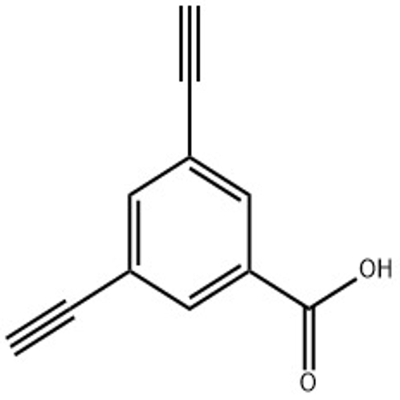-
Categories
-
Pharmaceutical Intermediates
-
Active Pharmaceutical Ingredients
-
Food Additives
- Industrial Coatings
- Agrochemicals
- Dyes and Pigments
- Surfactant
- Flavors and Fragrances
- Chemical Reagents
- Catalyst and Auxiliary
- Natural Products
- Inorganic Chemistry
-
Organic Chemistry
-
Biochemical Engineering
- Analytical Chemistry
-
Cosmetic Ingredient
- Water Treatment Chemical
-
Pharmaceutical Intermediates
Promotion
ECHEMI Mall
Wholesale
Weekly Price
Exhibition
News
-
Trade Service
3-Methoxythiophene-2-carboxylic acid, commonly abbreviated as MTCA, is an organic compound that is widely used in the chemical industry.
As an important intermediate in the production of a variety of chemicals and materials, MTCA plays a vital role in the manufacturing process of many downstream products.
In this article, we will explore the upstream and downstream products of MTCA and their applications in the chemical industry.
Upstream Products
The production of MTCA involves several upstream processes, including the synthesis of 3-methoxythiophene and its subsequent conversion to 3-methoxythiophene-2-carboxylic acid.
The synthesis of 3-methoxythiophene typically involves the reaction of phenyl isocyanate with o-methoxybenzaldehyde in the presence of a catalyst, such as sodium hydroxide, to produce the desired compound.
Once 3-methoxythiophene is synthesized, it can be transformed into MTCA through a series of chemical reactions.
This process typically involves the reaction of 3-methoxythiophene with carbon dioxide in the presence of a strong acid catalyst, such as sulfuric acid, to produce the desired carboxylic acid.
Downstream Products
MTCA is an important intermediate in the production of a wide range of downstream products, including pharmaceuticals, plastics, and dyes.
One of the most important downstream products of MTCA is 2,3-dimethoxy-5-methyl-6-t-butylbenzene, which is used as a starting material in the production of the anti-malarial drug, artemisinin.
Another important downstream product of MTCA is polycarbonate, a type of engineering thermoplastic that is widely used in the manufacturing of automotive parts, electrical components, and medical devices.
MTCA is used as a building block in the production of polycarbonate, which is synthesized through a process known as polymerization.
In addition to these applications, MTCA is also used as a precursor in the production of fuchsine, a block printing dye, and safranine T, a chemically-sensitive dye used in biological research.
Applications in the Chemical Industry
MTCA is an important intermediate in the production of a variety of chemicals and materials, and its applications in the chemical industry are vast.
The compound is used as a building block in the production of polymers, pharmaceuticals, and dyes, among other products.
One of the most important applications of MTCA is in the production of polycarbonate, which is a versatile engineering thermoplastic used in a wide range of applications.
The use of MTCA as a building block in the production of polycarbonate makes it possible to create materials that are strong, lightweight, and resistant to heat and chemicals.
In the pharmaceutical industry, MTCA is used as a starting material in the production of artemisinin, an anti-malarial drug that is widely used in the treatment of malaria.
The compound is also used in the production of other pharmaceuticals, such as fuchsine and safranine T, which are used in various medical applications.
In the dye industry, MTCA is used as a precursor in the production of dyes such as fuchsine and safranine T.
These dyes are used in a variety of applications, including textile printing and biological research.
Overall, the use of MTCA in the chemical industry is widespread and its applications are varied.
As an important intermediate in the production of a variety of chemicals and materials, MTCA plays a vital role in the manufacturing process of many downstream products.
The compound'







